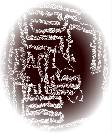Factors in violence
Books & videos for those who are sometimes violent or angry & stressed
SEE ALSOSurvivorway channel videos leading to information for Survivors of various kinds www.youtube.com/user/survivorway
TANSAL Abuse & Rights www.tansal.org.uk
'DOC MATRIX' website at www.docmatrix.me.uk
|
| Is it really worth it? | |
Whether it gets called ostracism, rejection, dissing or whatever, the effects of silent treatment can be hard to take. Click for ' Why rejection hurts: a common neural alarm system for physical and social pain' by Naomi Eisenberger and Matthew Lieberman http://www.neuro-psa.org.uk/download/rejection.pdf Ostracism: The Cruel Power of Silence, an All in the Mind radio interview http://www.abc.net.au/rn/science/mind/stories/s1066040.htm Kipling Williams has researched ostracism and its effects, and you can search on Google or any search engine for details on his work. Some books he has authored are available from Amazon:
Also see: 'Don't Take It Personally: The Art of Dealing with Rejection' by Elayne Savage Amazon often have second-hand books which are much cheaper! |
|
Scapegoating and ostracism have similarities:
Someone or some people can get blamed or ignored Actually it can happen to anyone, and for no particular reason |
|
Direct link to watch
|
Direct link to watch
|





